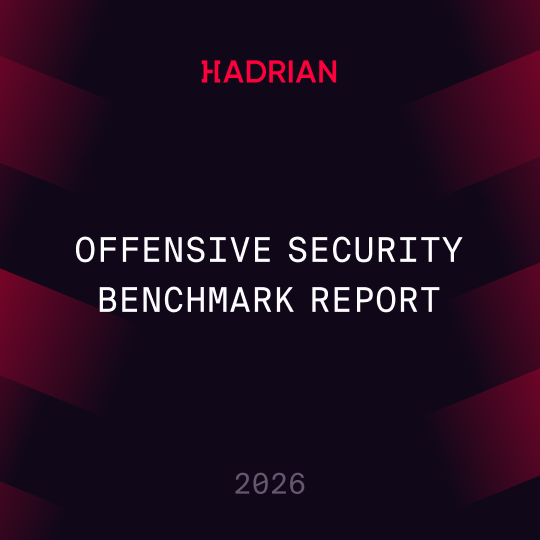
A subtle discrepancy in how PHP and its underlying C libraries interpret strings opens the door to a powerful attack vector. CVE-2025-1220 is a newly disclosed vulnerability in PHP that allows attackers to bypass hostname allowlists and pivot into internal networks by exploiting how null bytes are handled in the fsockopen() function. The bug is deceptively simple — a quiet mismatch between layers — yet it enables stealthy SSRF attacks that can compromise internal systems.
Summary
Vulnerability: Null byte truncation in PHP’s fsockopen()
CVE: CVE-2025-1220
Impact: Hostname allowlist bypass → SSRF → internal network access
Affected Versions:
- PHP 8.1 < 8.1.33
- PHP 8.2 < 8.2.29
- PHP 8.3 < 8.3.23
- PHP 8.4 < 8.4.10
Severity: Medium (but high impact in real-world usage)
Fix: Upgrade PHP to patched versions and sanitize hostname input
The bug: null bytes vs. network APIs
This vulnerability arises from how PHP internally represents strings versus how C libraries process them. In PHP, strings can contain null bytes (\0) and still be considered valid for comparison or manipulation. But at the system level, when PHP calls out to C functions like those behind fsockopen(), the string is treated as null-terminated — meaning anything after the first null byte is silently ignored.
This inconsistency can be weaponized by attackers. For example, the following call appears benign at first glance:
$fp = fsockopen("127.0.0.1\0.attacker.com", 80);
From PHP’s perspective, this is a valid hostname — and if your logic checks that the hostname ends with .attacker.com, it will pass. However, when the connection is made, the underlying C networking library sees only 127.0.0.1. The domain suffix is never used at the network layer, and PHP never knows.
Exploiting the flaw: SSRF made simple
To understand the real-world implications, consider a common pattern: a PHP application that proxies requests to a limited set of approved domains. The application performs a simple validation using a string function like str_ends_with() to ensure that only domains within the company’s control are accessed.
$host = $_GET['host'] ?? '';
if (str_ends_with($host, '.company.com')) {
$fp = fsockopen($host, 80, $errno, $errstr, 2);
// ...
}
This logic appears sound — any hostname must end with .company.com. But an attacker can bypass this check entirely by submitting a payload like:
http://your-app/proxy.php?host=127.0.0.1%00.company.com
Here’s what happens: PHP sees the full string and confirms it ends with .company.com. But as the string is passed to the underlying system socket, it is truncated at the null byte. The actual connection is made to 127.0.0.1. The result is a classic server-side request forgery. From there, the attacker may scan local ports, access internal admin panels, or attempt to extract metadata from internal cloud APIs.
{{cta-aev}}
What systems are at risk?
This vulnerability affects any PHP application that accepts user-controlled hostnames or URLs and relies on string-based validation to enforce domain-level restrictions. It becomes particularly dangerous when those strings are passed directly to networking functions like fsockopen() or stream_socket_client() without deeper validation. Even if a developer uses functions like substr(), regexes, or str_ends_with() to enforce domain suffixes, those checks can be bypassed with null byte payloads. The mismatch between application-level and OS-level string interpretation is the core issue, and it is easy to overlook in audit.
Detection: Look for null byte payloads
This vulnerability is subtle in how it manifests. Requests succeed, and responses may appear completely normal, making detection a challenge.
- Search logs for %00 or \0 in hostname parameters
- Monitor unexpected requests to internal IPs (e.g., 127.0.0.1, 169.254.*.*)
- Use packet capture or deep inspection where available
Some logging frameworks may strip or misinterpret null bytes, so packet inspection or proxy instrumentation may be necessary to get the full picture.
Mitigation: Patch and harden
The first step to mitigating this vulnerability is to upgrade your PHP runtime. Upgrade PHP to the latest version in your branch:
- PHP 8.1 → 8.1.33
- PHP 8.2 → 8.2.29
- PHP 8.3 → 8.3.23
- PHP 8.4 → 8.4.10
However, patching alone may not be enough. Applications that rely on user-supplied hostnames should take additional precautions. Null bytes should be actively stripped or rejected in all input used for outbound connections. Host validation logic should be rethought — rather than checking domain suffixes as strings, it's safer to resolve hostnames to IP addresses and verify those against a list of known, trusted ranges. Functions like parse_url() can help deconstruct URLs more safely, but IP-level verification should be used whenever possible.
As a defense-in-depth measure, consider restricting egress from your application servers entirely. By applying firewall rules, VPC security groups, or cloud-based egress controls, you can ensure your apps can only connect to approved services, regardless of how the hostname was validated in code.
Why this matters
CVE-2025-1220 is a textbook case of the dangers that arise when assumptions break down between abstraction layers. PHP operates on one understanding of a string; the system underneath sees something else. This gap, though technically narrow, has broad implications, especially when external input is passed to lower-level functions.
The exploit is trivial to construct, the behavior is hard to detect, and the consequences of unauthorized internal access can be devastating. If your PHP application accepts user input to control outbound connections, you should assume it is vulnerable until proven otherwise. Patch now. Sanitize inputs. And treat null bytes as the boundary they are.
{{cta-demo}}




